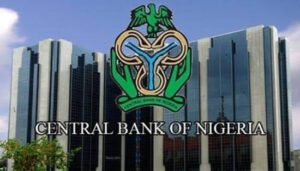
H1 2022: Union Bank of Nigeria’s total assets tumble by 2.1% to N2.54trn
By Philemon Adedeji
Union Bank of Nigeria Plc has declared its unaudited results for the period ended June 30, 2022 with total assets dropping by 2.1 per cent to N2.54trillion as of June 30, from N2.6 trillion achieved in the half (H1) 2021.
The unaudited H1 2022 financial results submitted to the Nigerian Exchange Limited (NGX), revealed that liabilities dropped by 2.9 per cent to N2.260 trillion as of June 30 2022, from N2.328 trillion in 2021, amid 16.9 per cent increase in current tax liabilities to N1.660 trillion as of June 30 2022 from N2.328 trillion in 2021.
The key highlights of the financial statements under total assets showed a decline in property and equipment to 4.7 per cent as of June 30th, 2022 to N54.955 billion from N57.673 billion derived in 2021.
Also the rate at which the bank offered loans and advances to customers depreciated to a 0.4 per cent to N865 billion as of June 30 2022 from N868 billion loan offered to customers in 2021 full financial year.
Other key highlights of the financial statement include a seven per cent growth in customers deposit which rose significantly to N1.450 trillion as of June 30, 2022 from N1.356 trillion in 2021.
However, Union Bank of Nigeria’s Profit After Tax (PAT) rose by 12.6 per cent to N11.074 billion in H1 2022 from N9.836 billion achieved in H1 2021
Profit Before Tax (PBT), recorded for the period increased by 6.7 per cent to close at N12.3 billion in H1 2022 from N11.594 billion in H1 2021.
Similarly, net interest income recorded during the period under review gained a 30.7 per cent to N35.636 billion in H1 2022 from N27.260 billion in H1 2021. As operating income recorded by the group increased to 3.6 per cent to N49.901 billion H1 2022 from N48.147 billion accounted in H1 2021.
Net interest income after impairment charge for credit losses recorded by the group largely increased to N28.7 billion in H1 2022 from N20.338 billion in H1 2021, reflecting an improvement of 41.1 per cent.
Specifically, the growth in profit drives gross earnings increased to N87.725 billion in H1 2022 from N77.798 billion in H1 2021, representing an increase of 12.8 per cent.
The group unaudited result showed total equity of N266.9 billion recorded in H1 2021 to N280.5 billion in the comparable period of 2021, Union Bank of Nigeria has recorded a 5.1 per cent growth in total equity during the half year 2022.
In addition, Union Bank operating expenses recorded for the H1 2022 stood at N37.4 billion as compared to N36.9 billion achieved in H1 2021, reflecting a growth of 1.4 per cent
While commenting on the results, CEO, Union Bank of Nigeria, Mudassir Amray in a statement said, “Following the successful acquisition of majority shares of the bank by Titan Trust Bank, we are now focused on strengthening the core business and improving operational efficiencies across board.
“In parallel, we are going full throttle on integrating the two banks to form a ‘stronger Union’ positioned to deliver value to all stakeholders, leveraging technology and digital innovation. The integration is expected to be completed by the end of the third quarter.
“In H1 2022, compared to H1 2021, the bank’s gross earnings, net interest income and Profit Before Tax grew by 12.5 per cent, 41 per cent, and 6.7 per cent respectively. Since taking the reins as Chief Executive Officer as at June 2, 2022, I am confident that the bank has all the necessary ingredients to be a tier 1 bank,” he said.
“As we drive towards a seamless integration in the second half of the year, we remain committed to achieving our business objectives. We are excited about exploiting the synergies from the newly expanded franchise post integration,” Amray added.
Speaking on the H1 2022 numbers, Chief Financial Officer, Joe Mbulu said, “We have continued to deliver improved efficiency, enabling growth in PBT, which grew by 6.7per cent to N12.3billion.
“Net Interest Income increased by 41 per cent during the period, driven by interest income which grew from N47.7billion to N64.3billion during H1 2022. The rise in interest income was underpinned by growth in loans/advances which rose by 24percent,” he added.
“Despite inflationary pressures, our strong cost management model continues to yield dividends. Operating expenses grew slightly by only 1.4 per cent to N37.3billion from N36.3billion. Deposits increased by seven per cent to N1.5 trillion while our risk assets dropped slightly by 0.4 per cent to N889.1billion from N895.3billion as at year-end 2021.
“Our capital and liquidity positions remained above regulatory levels, with capital adequacy ratio (CAR) at 16.4 per cent and liquidity ratio of 39.2 per cent further demonstrating the capacity of our strong balance sheet. Our non-performing loan ratio ended at 4.4 per cent. Furthermore, our coverage ratio remains robust at 140.7 per cent,” Mbulu said.



